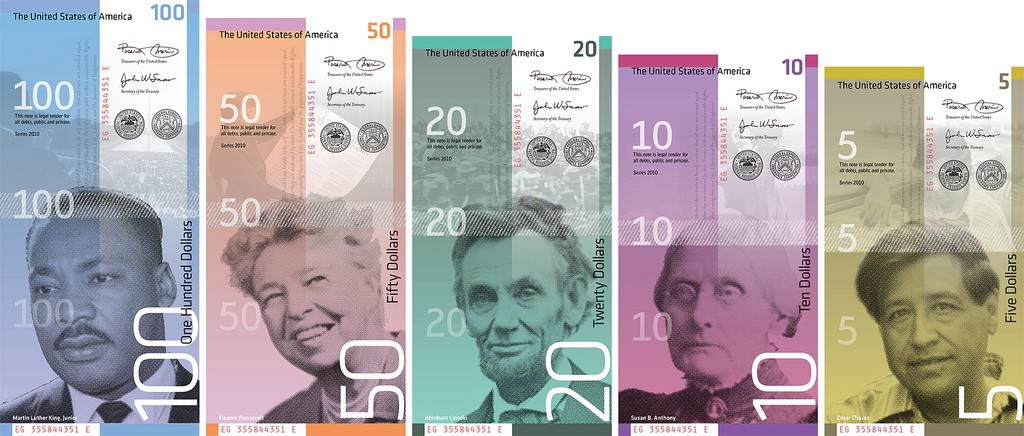Possible Adventures In Starting A Currency
Just a thought.

I want to invent my own currency — not in actuality (though I could very well change my mind on that), but I certainly like the idea of the game of it. I like the idea of thinking about what that could possibly mean. It’s striking to watch people react with great enthusiasm to Bitcoin and with anger born of dismay to a currency — that is, the Euro — whose central bank lacked the authority for far too long to act like a central bank when a crisis was happening, and thereby left countless lives languishing in its wake as governments moved to implement needless austerity and far-right politicians sensed an opening. I like the idea of trying to think of something a little bit more dexterous than micro-loans.
During his campaign for the Presidency, Bernie Sanders advocated turning post offices into banks as well, but I’d want to perhaps take it one step further, where — as long as it remains sensible — and I’ll say it one more time for emphasis and before economists break things in frustration — as long as it remains sensible, I’d suggest it might be worthwhile to consider using post office banks to introduce experimental (‘stimulus currencies’) currencies at faster rates than one would otherwise be able to. Or — at the very least — have someone from the SBA stop by these “post office banks” at regular intervals to talk about microloans and help make the overall process a little bit easier for someone seeking a micro loan — if a post office is to be “a people’s bank,” it ought to have the capacity to reflect that — and tracking its subsequent usage and efficacy with something resembling an updated version of “Where’s George?”
Obvious dangers await the idea (beyond the fact that — as Slate noted in 2008 — local currencies also have a tendency to collapse): as three individuals wrote in “The Veil Of Experimental Currency Units” in 2013, “… this money illusion effect can become detrimental if it creates … an artificial ‘game-board’ sense of speculative competitiveness. Financial incentives could then be masked behind the veil of ECUs.”
In other words: it wouldn’t make sense to promise money to someone who needed it, give them the illusion that they suddenly had something of value, and then take money away from them again; and, what’s more, an exterior force could very well manipulate the value of the experimental currency, too. (Could you imagine carrying one of these experimental currencies that would be capable of notifying you whether or not it was experiencing ‘surge pricing’ as irregularly and unexpectedly as Uber does?)
But to say that something is an “adventure” when all you’ve done so far is a little bit of miniature Hamlet-ing over the details and the definitions seems a little silly. One wants to be able to rush to the sense of altruistic reward of being able to help someone right away, of taking something from the beginning of Matthew Desmond’s Evicted — i.e., “In a typical year, almost 1 in 5 poor renting families nationwide missed payments and received a diconnection notice from their utility company” — and plug it into that charged socket of corrective forces and justice done. (Or what about using this loose framework to tackle campaign finance reform, and we get money (and constant fundraising by elected officials) out of politics once and for all by creating a currency and specific exchange market for that purpose alone, thereby giving legislators more time to legislate?)
There’s a paper trail out there making both a theoretical and a practical case when it comes to creating your own currency: with the former, we can look to an essay by Robert Swann and Susan Witt (where it’s noted that — at one point — someone reaches out to The Treasury Department for comment regarding an experimental currency in Exeter, New Hampshire, and is told that the Treasury doesn’t “care if [they] issue … pine cones, as long as it is exchangeable for dollars so that transactions can be recorded for tax purposes”), a broad collection of “reference materials for creating a local currency,” and a book that I’m still digging through (as of this writing) called, The Handbook of Experimental Economics: Vol 2; with the latter, there are Berkshares in Western Massachusetts, Ithaca Hours, The People’s Bank of Govanhill, and more.
And there are historical examples, too, like the Wörgl, a temporary currency made in a small town in Austria (of the same name) during the height of The Great Depression that had the following printed on its back —
To all whom it may concern! Sluggishly circulating money has provoked an unprecedented trade depression and plunged millions into utter misery. Economically considered, the destruction of the world has started. — It is time, through determined and intelligent action, to endeavour to arrest the downward plunge of the trade machine and thereby to save mankind from fratricidal wars, chaos, and dissolution. Human beings live by exchanging their services. Sluggish circulation has largely stopped this exchange and thrown millions of willing workers out of employment. — We must therefore revive this exchange of services and by its means bring the unemployed back to the ranks of the producers. Such is the object of the labour certificate issued by the market town of Wörgl: it softens sufferings dread; it offers work and bread.
— which is the kind of sentiment that makes me want to walk into a bank, head up to the counter, and tell them I have a few ideas of my own.
Support The Billfold
The Billfold continues to exist thanks to support from our readers. Help us continue to do our work by making a monthly pledge on Patreon or a one-time-only contribution through PayPal.
Comments